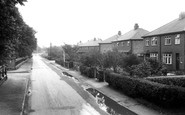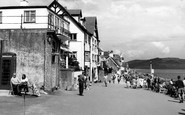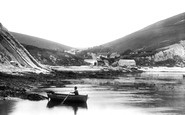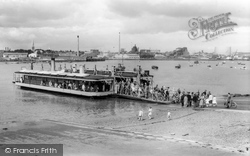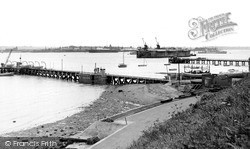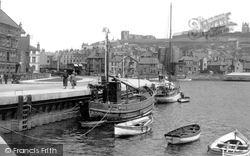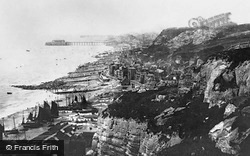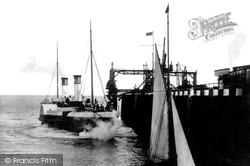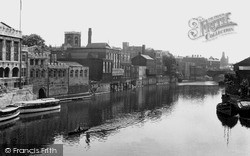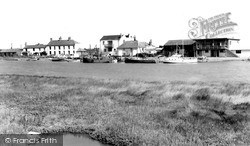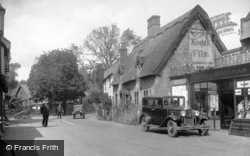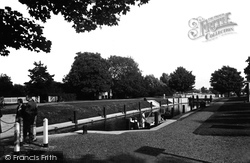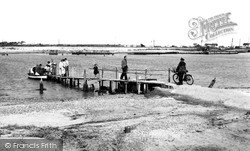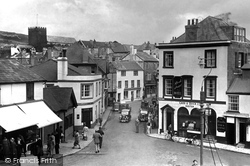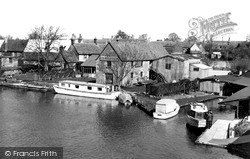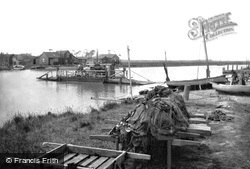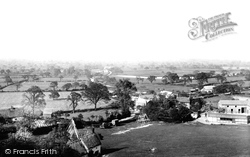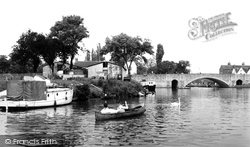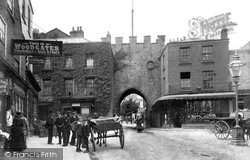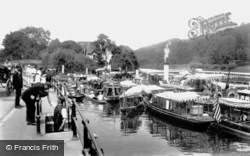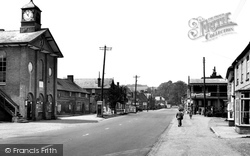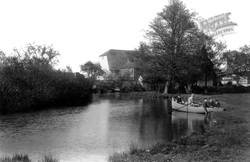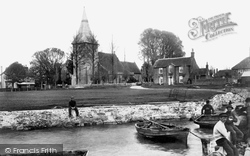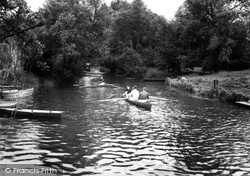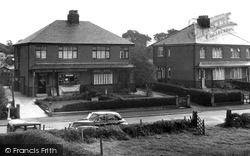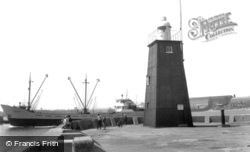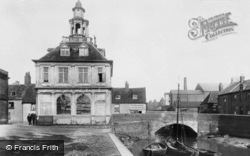Merry Christmas & Happy New Year!
Christmas Deliveries: If you placed an order on or before midday on Friday 19th December for Christmas delivery it was despatched before the Royal Mail or Parcel Force deadline and therefore should be received in time for Christmas. Orders placed after midday on Friday 19th December will be delivered in the New Year.
Please Note: Our offices and factory are now closed until Monday 5th January when we will be pleased to deal with any queries that have arisen during the holiday period.
During the holiday our Gift Cards may still be ordered for any last minute orders and will be sent automatically by email direct to your recipient - see here: Gift Cards
Places
14 places found.
Those places high-lighted have photos. All locations may have maps, books and memories.
- Coates, Lancashire
- Coate, Wiltshire (near Swindon)
- Coates, Lincolnshire
- Coat, Somerset
- Coates, Gloucestershire
- Coates, Nottinghamshire
- Coates, Cambridgeshire
- Coates, Sussex
- Coates, Lothian (near Penicuik)
- Coate, Wiltshire (near Devizes)
- Great Coates, Humberside
- Salt Coates, Cumbria
- Little Coates, Humberside
- North Coates Airfield, Lincolnshire
Photos
49 photos found. Showing results 1,081 to 49.
Maps
88 maps found.
Books
1 books found. Showing results 1,297 to 1.
Memories
1,490 memories found. Showing results 541 to 550.
My First Job
I started work for J R Ashall Ltd. in April 2nd1956 Easter was early that year and it was snowing as I reported their offices.I waited outside in the snow I was wearing hand me downs that was all except my under ware, I had not top coat ...Read more
A memory of Padgate by
1958 To 1990
My parents moved from Hackney East London to Orchard Road in 1958, I was two years old. Orchard Road connected to New Road by way of a pedestrian break in a hedge between the two roads, New Road was unmade in those early days. A ...Read more
A memory of Smallfield by
Knickerbocker Glories
From when I was about 11 years till 14 approximately my mother and I spent our holidays in Lyme Regis. We would go out on boats fishing for mackerel. I also remember eating Knickerbocker glories at a cafe overlooking the beach and the Cobb. They were delicious!
A memory of Lyme Regis by
When I Was A Wolf Cub In Grays
In the early 1950's we lived in "Little Thurrock" as my Mum called it! Actually in Blackshotts Lane at a time before the road was adopted by the council and full of pot holes! What I want to find is exactly where the ...Read more
A memory of Grays by
Kingswear, Me, And My Dog.
He was only a few weeks old when he came to us, my mother had got to know about him and thought he was just the thing I needed to cheer me up. I was fourteen years of age and had not long moved home; my parents had decided ...Read more
A memory of Kingswear
Wartime Prefabs At Upper Boat.
I have just read a memory of this extate from Brian Williams, I lived there from 1943 to 1945, at which point my father returned to his pre-war workplace at Croydon Airport. I remember a Brian Williams, I wonder if its the ...Read more
A memory of Upper Boat by
Wartime Prefabs At Upper Boat.
I have just read a memory of this extate from Brian Williams, I lived there from 1943 to 1945, at which point my father returned to his pre-war workplace at Croydon Airport. I remember a Brian Williams, I wonder if ...Read more
A memory of Upper Boat by
Growing Up At Lulworth Cove
I lived in Lulworth Cove from 1949 to until 1972. It was a fantastic place to spend your childhood and have many happy memories of time spent with my sister and friends. Crabbing, swimming, rowing boats across the ...Read more
A memory of Lulworth Camp by
Childhood Memories
This August 2014, on my way back from Whitby, I took a detour and called at Reighton Gap. The last time I was there was in the late 1950s / early 60's when we stayed at the bungalow my grandmother owned on Boat Cliff Road. I seem ...Read more
A memory of Reighton by
Entree Into That Green And Pleasant Land.
My name was Jeannette Turner. In about 1936 my mother father and self-age 3 moved from the Eastend of London, via first moving into 46, Hillingdon Road Barnhurst, to stay with my recently widowed Auntie Daisy. My ...Read more
A memory of Dartford
Captions
1,649 captions found. Showing results 1,297 to 1,320.
Until the 1930s flying boats left here for the Channel Islands.
The landing stage and boats were part of the Naval Training Establishment HMS Ganges. Originally this was a training ship, but it became land based from 1905 until 1976.
By this time the fishing boats were growing larger, but no trawlers had yet appeared.
Below, in the foreground, are the fishing boats, net drying sheds and nets drying in the open air; the net shops are unique reminders of the fishermen of the town. The resort starts beyond them.
The foundation of Folkestone's prosperity during the 19th century, these packet boats conveying passengers across the Channel to the coast of France some twenty-six miles away transformed Folkestone
By the time of this photograph, the river was being used more and more for pleasure: streamlined boats are moored by the bank, and a canoe with its lone occupant is heading towards Lendal Bridge
This view from the Walberswick side, across the River Blyth, shows some activity, including boat repair, chandlery sales and services for visitors.
In the summer months it is thronged with pleasure boats, and all is bustle and noise. Here village policemen are directing the traffic.
Beyond the lock gates the Thames will carry the boats down to Laleham and Chertsey.
The service was revived with a rowing boat after the Second World War.
Bridge Street leads straight ahead, concealing the ancient Buddle Bridge, which lies beneath the cars between the Pilot Boat Hotel (left) and Rock Point Hotel (right).
Commercial traffic on the Thames virtually ceased a hundred years ago, and today pleasure boating is everything.
Today, as in the 13th century, a rowing boat provides the service for a modest fee. So, in this case, times do not change!
The road through the Hough towards Wilmslow snakes into the murky distance, while in the foreground are the swing boats in the field of the cottage, a favourite venue for Sunday school outings
Beyond the boat sheds is the Nag's Head on the Thames, as the pub is now named. The island is now laid out as a private park, and much better managed that in the period when this view was taken.
In January 1644 Edward Massey, the Parliamentarian garrison commander at Gloucester, launched a lightning raid upon Chepstow by boat; his troops captured a supply ship laden with stores for the Royalists
In the melee, the nearest boat to the camera appears to be flying the Stars and Stripes of the USA, which might not be a common sight on England's premier river in those days.
Excellent cakes were on sale from a nearby bakery and painted ladies in their bustles and boats would drape the verandah (where the garage is now).
This peaceful scene shows schoolboys boating near the mill.
The quay is in the foreground, with fishermen sitting around and tending their boats. Behind Quay Meadow stands the Saxon church of Holy Trinity with a wooden shingled broach spire.
Just as they do today, the boys who lived in this historic town - Fordwich is the smallest town in Britain - enjoyed boating on the River Stour which ebbed and flowed between Canterbury and the sea.
Using a flat-bottomed rowing boat, he would ferry the Hambleton villagers over the Wyre for one penny.
The Pilot's Pier light sits on a long promontory extending from the sea wall, and cargo shipping and the associated tug boats pass by it on their way in and out of the port.
Outside the entrance, a strict- looking customs official is keeping his eagle eye on the photographer as well as on the fishing boats, which were often used for smuggling tobacco, wines and
Places (14)
Photos (49)
Memories (1490)
Books (1)
Maps (88)

